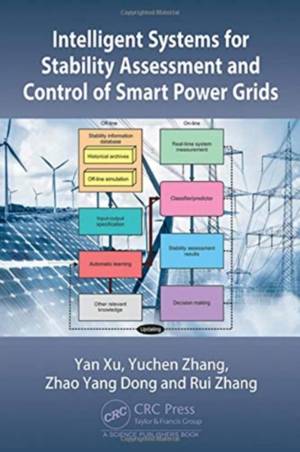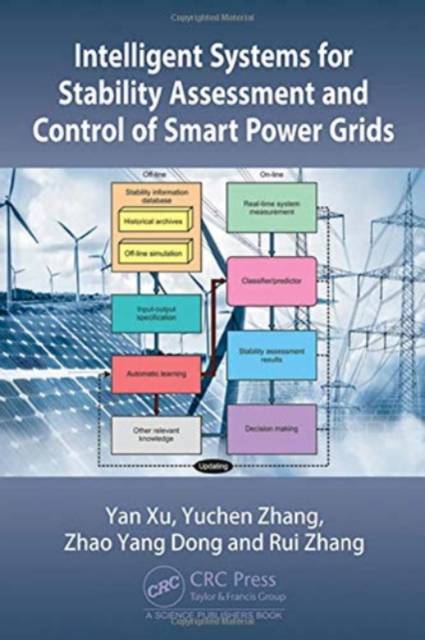
- Retrait gratuit dans votre magasin Club
- 7.000.000 titres dans notre catalogue
- Payer en toute sécurité
- Toujours un magasin près de chez vous
- Retrait gratuit dans votre magasin Club
- 7.000.0000 titres dans notre catalogue
- Payer en toute sécurité
- Toujours un magasin près de chez vous
Intelligent Systems for Stability Assessment and Control of Smart Power Grids
Yan Xu, Yuchen Zhang, Zhao Yang Dong
Livre broché | Anglais
126,95 €
+ 253 points
Description
The book presents state-of-the-art intelligent system solutions for advanced stability assessment and control of power systems in the smart grid age. To enhance the stability, it presents the architecture, algorithms, and applications of intelligent systems for on-line stability assessment, preventive stability control.
Spécifications
Parties prenantes
- Auteur(s) :
- Editeur:
Contenu
- Nombre de pages :
- 290
- Langue:
- Anglais
Caractéristiques
- EAN:
- 9780367534745
- Date de parution :
- 15-06-22
- Format:
- Livre broché
- Format numérique:
- Trade paperback (VS)
- Dimensions :
- 156 mm x 234 mm
- Poids :
- 426 g

Les avis
Nous publions uniquement les avis qui respectent les conditions requises. Consultez nos conditions pour les avis.






